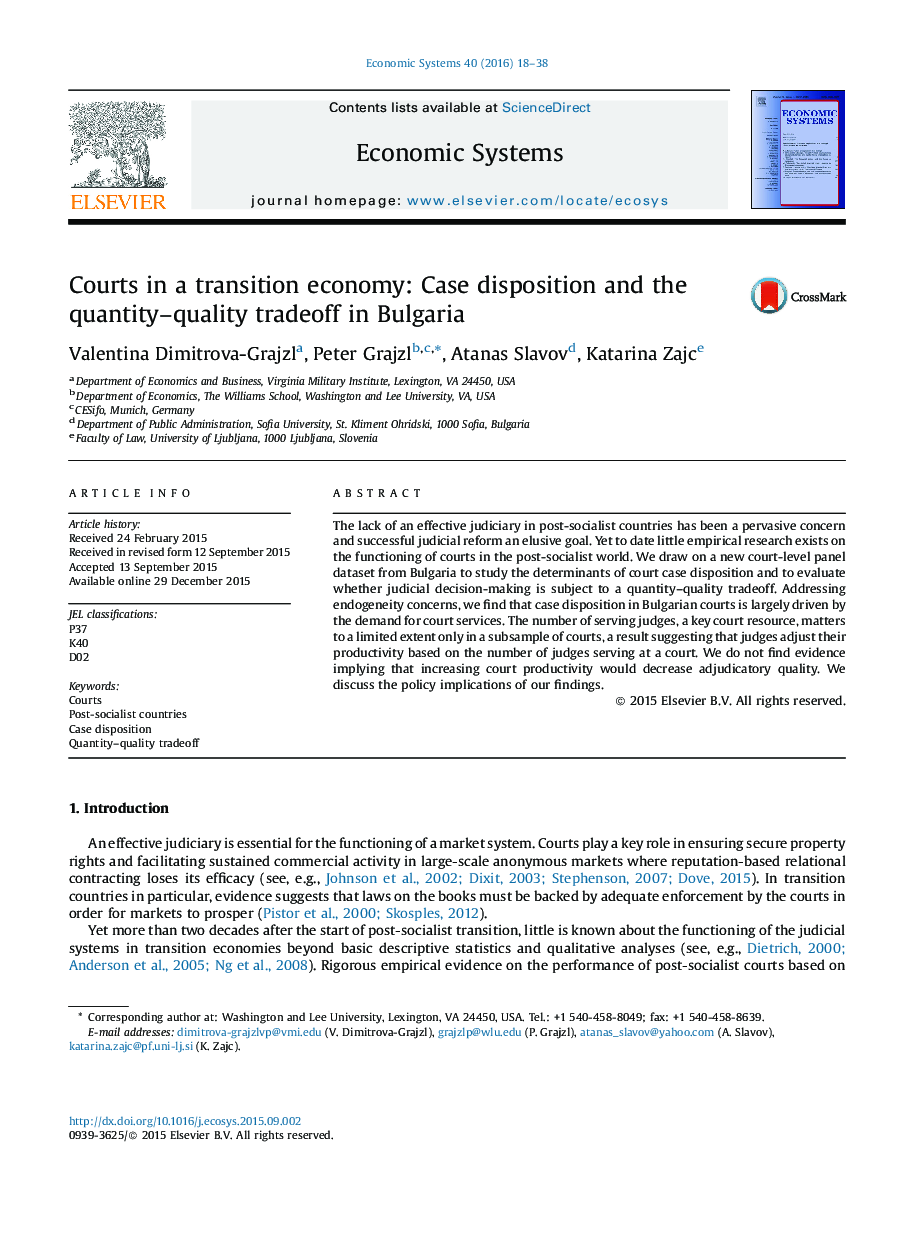| Article ID | Journal | Published Year | Pages | File Type |
|---|---|---|---|---|
| 5056253 | Economic Systems | 2016 | 21 Pages |
â¢Post-communist judiciaries lack effectiveness, yet research on them is scarce.â¢We examine a new court-level panel dataset from Bulgaria.â¢We find that court output is primarily driven by the demand for court services.â¢The number of judges, a key court resource, matters only in a subset of courts.â¢We do not find evidence of a quantity-quality tradeoff.
The lack of an effective judiciary in post-socialist countries has been a pervasive concern and successful judicial reform an elusive goal. Yet to date little empirical research exists on the functioning of courts in the post-socialist world. We draw on a new court-level panel dataset from Bulgaria to study the determinants of court case disposition and to evaluate whether judicial decision-making is subject to a quantity-quality tradeoff. Addressing endogeneity concerns, we find that case disposition in Bulgarian courts is largely driven by the demand for court services. The number of serving judges, a key court resource, matters to a limited extent only in a subsample of courts, a result suggesting that judges adjust their productivity based on the number of judges serving at a court. We do not find evidence implying that increasing court productivity would decrease adjudicatory quality. We discuss the policy implications of our findings.
